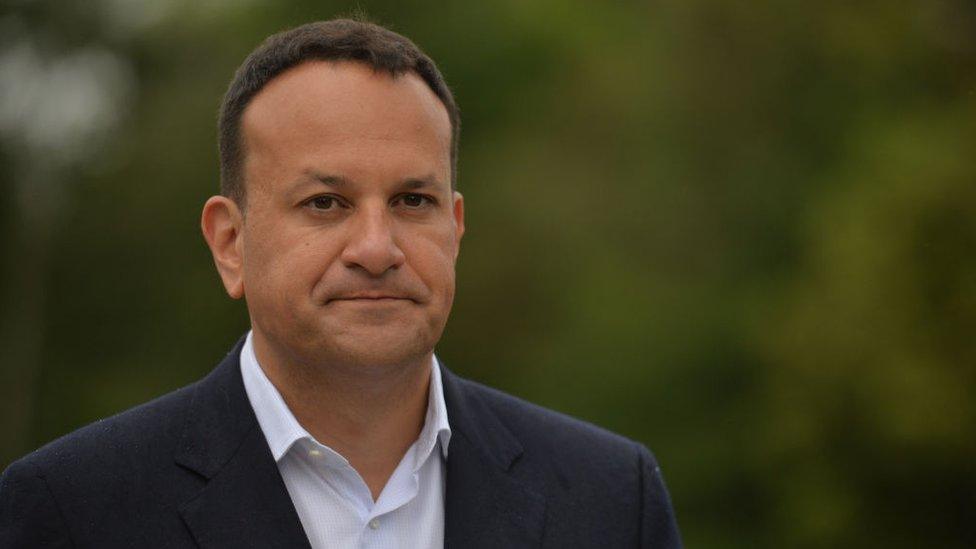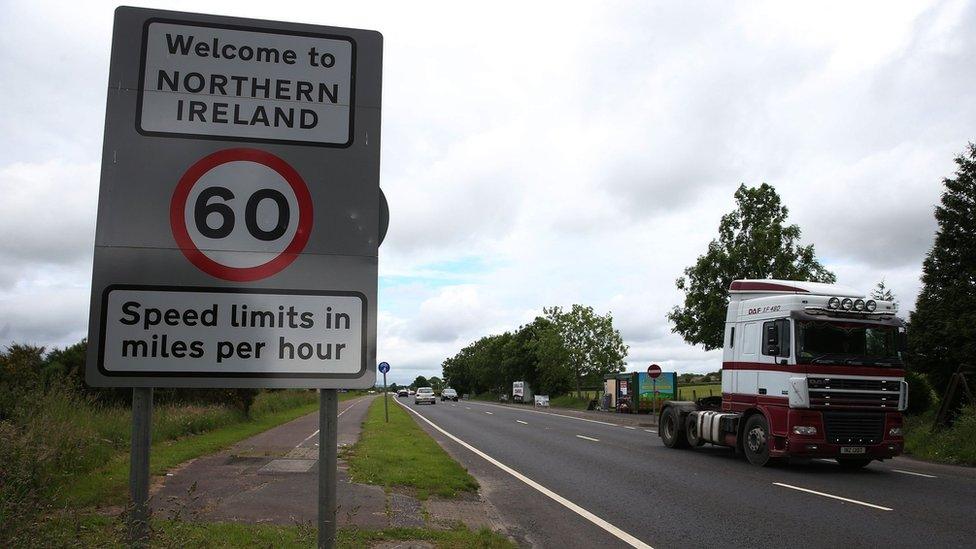Cross-border trade: Scope to expand services market says ESRI
- Published
- comments

Only about 1% of the Republic of Ireland's services exports currently go to Northern Ireland
There is "considerable scope'" to expand cross-border trade in services between Northern Ireland and the Republic, a think tank has suggested.
The Dublin-based Economic and Social Research Institute (ESRI) is looking at economic links as part of the Irish government's Shared Island initiative.
The ESRI said cross-border trade in services is "quite considerably lower" than that in goods, in both directions.
Generally, services tend to be less exportable than goods.
However, the ESRI said that in the case of the Republic of Ireland and Northern Ireland, proximity might be expected to reduce many of the usual barriers to services trade.
The report said that, currently, the Ireland is a more important services market for Northern Ireland than vice versa.
Ireland accounts for 17% of services outflows and 11% of services inflows to Northern Ireland (including services trade with Great Britain).
By contrast only about 1% of Ireland's services exports go to Northern Ireland, increasing to 2% when multinationals are excluded.
The report's author Prof Martina Lawless said this reflected the relatively small size of the Northern Ireland economy and the highly export-orientated and foreign direct investment (FDI)-dominated structure of Ireland's services sector.
The largest services activity reported from Northern Ireland to Ireland is in transportation and storage which accounts for more than a third of total services exports.
In the other direction, business services make up more than 40% of services going from Ireland to Northern Ireland followed by computer consultancy at another 20%.
Prof Lawless notes that Brexit poses potential risks to existing cross-border services trade.
That is because the Northern Ireland Protocol does not cover services so Northern Ireland is outside the EU's single market for services while Ireland is inside.
However she adds that the Common Travel Area (CTA) which allows for freedom of movement between Northern Ireland and Ireland is a mitigating factor for service delivery.
"The CTA means that the impact of any new restrictions on services trade should be lower for trade between Northern Ireland, Great Britain and Ireland relative to potential impacts on Northern Ireland's trade with the rest of the EU,' she adds.
Prof Lawless recommends that as a next step there should be cross-border coordination in expanding the collection of information on cross-border services flows.
The ESRI has also published a second paper looking at how to enhance the attractiveness of the whole island as a location for high value foreign investment.

Leo Varadkar urged people to 'think all-island' when it comes to the services economy
Tánaiste (Irish Deputy Prime Minister) Leo Varadkar said: "We commissioned this research to provide a high-quality evidence base for looking, in real terms, at how we could do more, and do better together, across both parts of this island.
"How we could align better, levelling up and taking the best of both jurisdictions.
"The research shows that there is much more scope to 'think all-island' when it comes to the services economy and attracting foreign direct investment."
Related topics
- Published15 April 2021
